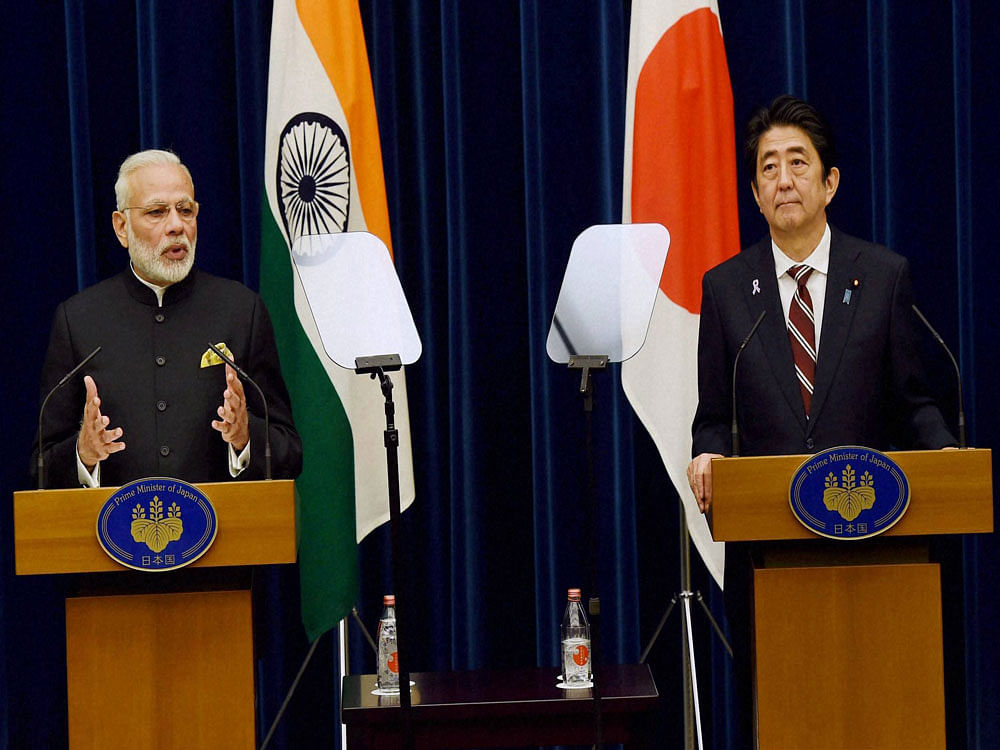
India and Japan will next month launch the Asia-Africa Growth Corridor, a development cooperation initiative envisaged to link the two continents and run counter to the One-Belt-One-Road initiative of China.
Prime Minister Narendra Modi and his Japanese counterpart Shinzo Abe will outline the vision of the Asia-Africa Growth Corridor during the annual India-Japan bilateral summit in New Delhi next month, sources told DH.
The new initiative is being seen as a move by New Delhi and Tokyo to counter Beijing’s bids to expand its geopolitical influence in Asia and Africa, particularly through its One-Belt-One-Road cross-continental connectivity initiative.
The vision of the Asia-Africa Growth Corridor is being developed on the four pillars – Development and Cooperation Projects, Quality Infrastructure and Institutional Connectivity, Enhancing Capacities and Skills and People-to-People Partnerships.
“We would naturally like the initiative (Asia-Africa Growth Corridor) to be based on universally recognized international norms, good governance, rule of law, openness, transparency and equality,”Foreign Secretary S Jaishankar said.
One of the reasons New Delhi cited for staying away from the One-Belt-One-Road initiative of Beijing was that China did not hold any consultation with India before embarking on it.
“There must be a strong sense of local ownership that can only happen with consultative project designing, transfer of technology and encouragement of skills,” Jaishankar said at an event held by the Research and Information System for Developing Countries, a think-tank under the Ministry of External Affairs, for consultation on the Asia-Africa Growth Corridor in New Delhi on Friday.
New Delhi in May turned down an invitation from Beijing to attend a conclave of the leaders of the countries, which joined China in the OBOR initiative. This was followed by the current India-China military face-off in Doklam Plateau in western Bhutan, worsening the complex relations between the two neighbouring nations.
Tokyo, unlike New Delhi, has joined the Belt-and-Road initiative of Beijing. But Japan's troubled ties with China has cast a shadow over its participation in the communist country's international connectivity initiative, which has of late been also criticized for putting the smaller participating nations at the risk of being caught in a debt-trap.
“No less important is ensuring of financial responsibility, so that there is no encouragement of unsustainable debts,” Jaishankar said, as he outlined how New Delhi would like to take forward the Asia-Africa Growth Corridor.
Modi and Abe first conceived the Asia-Africa Growth Corridor during their last summit in Tokyo in November last year.
The Research and Information System for Developing Countries of New Delhi and Institute of Developing Economies of Tokyo worked with Economic Research Institute for ASEAN and East Asia of Jakarta and other Asian and African think-tanks to draw the outline of the development cooperation initiative.
